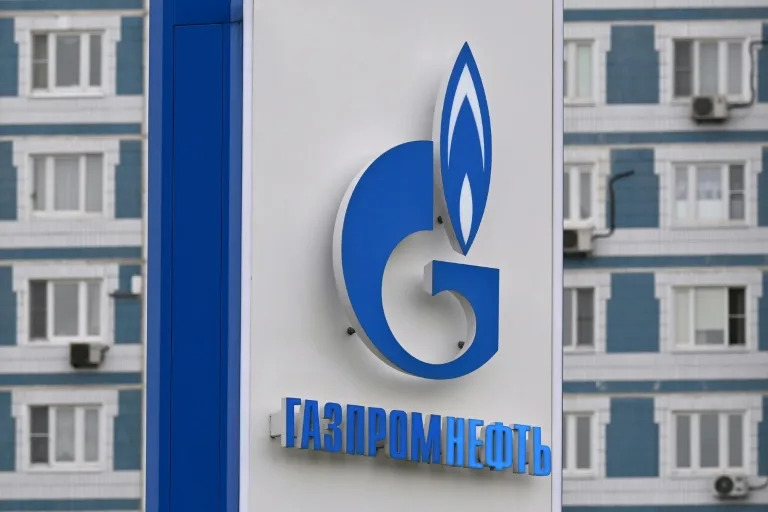-
Trade with Russia has slumped in the first quarter amid tightening US sanctions, the Financial Times said.
-
Companies in countries such as China are turning to costly underground channels to keep trading.
-
The ruble has also risen in popularity, as other currencies are pulled back.
Moscow's key trade partners are getting cold feet, and it's causing export volumes to shrink as a US clampdown triggers reprisal fears among those who do business with the Kremlin.
According to the Financial Times, shipments from Turkey and China have dropped meaningfully in the first quarter. For instance, exports from Ankara have plunged by a third year-to-year, while "high-priority" items sent to the region have fallen 40%. These are consumer goods that are critical to Moscow's war machine.
Behind the shift is the US Treasury Department. After a December executive order bolstered its sanctioning power, the department has amplified warnings against foreign lenders that facilitate trade with Russia.
That's included banks in other countries as well, such as the United Arab Emirates and Austria. To avoid Western repercussions, most have tightened their exposure to Russian counterparties, with the repercussions now felt by on-the-ground traders and investors.
"It's getting harder and harder every month. One month it is dollars, the next month it is euros; within six months you basically won't be able to do anything. The logical endpoint of this is turning Russia into Iran," a senior Russian investor told the outlet, referencing the sanctions laid against Tehran.
Russia's difficulty in moving either money or goods is a rising threat, as the country has escalated its wartime spending to keep its economy running.
In China, underground channels are cropping up, as domestic companies look for alternative ways to access the Russian consumer. With many banks no longer an option, currency brokers and cryptocurrency — an asset banned in China — are gaining popularity.
On the Russian side, the rise of middlemen is cutting into profits. According to FT, metals group oligarch Vladimir Potanin recently blamed these mediator's for his company's falling revenue, citing their 5% to 7% commissions.
But while such go-betweens are adding both complexity and costs to those still trying to trade with Russia, it may end up also adding difficulty to Western efforts to keep track of trade, sources told the outlet.
At the same time, the US' crackdown has proliferated trade in the Russian ruble, as other currencies increasingly fall out of favor.
For instance, rubles are now the mainstay currency for Indian traders buying Moscow crude, after dealers in the UAE cut off payments in dirhams, a Russian banking source said. That's as foreigners are still free to buy rubles on the Moscow Exchange when settling payments with Russian parties.
In fact, the share of Russian exports paid in rubles jumped to 40% in February, having hovered under 15% in pre-war years. Imports also witnessed a rise.
Still, the ruble faces restricted convertibility, making it difficult to reach trade volumes once possible under the dollar.
Get AfriPrime Android Web View app....Click the link to Amazon app store to download https://rb.gy/3xek46
Record loss for Russia's Gazprom as European market closed
Exports to Europe have long been Gazprom's top earnings source
Russian energy giant Gazprom said Thursday it suffered a record annual loss last year as the European market was practically shut to its gas exports due to sanctions over Moscow's military operation in Ukraine.
The state-owned firm suffered a net loss of 629 billion rubles ($6.9 billion) in 2023 compared to a net profit of 1.23 trillion rubles in 2022.
The results are an indication of the heavy impact of Western sanctions on Russia following the military offensive launched in February 2022.
Exports to Europe have long been Gazprom's top earnings source, but following the start of the conflict in Ukraine European nations sought to reduce their reliance upon Russian natural gas.
The sabotage of the Nord Stream pipelines in September 2022 then closed off the main transportation channel.
Get AfriPrime Android Web View app....Click the link to Amazon app store to download https://rb.gy/3xek46
Gazprom has sought to find new export clients, but building new infrastructure is costly and can take years.
It is seeking to increase the capacity of its Power of Siberia pipeline to China, but Moscow has yet to seal a deal with Beijing to build a second pipeline.
Gazprom, which has the largest natural gas reserves in the world, also has to deal with the financial burden of expanding its domestic distribution network.
Russia saw its oil revenue double in April despite Western sanctions
-
Russia's oil revenue soared by 90% in April compared to the previous year, Bloomberg reported.
-
The rise comes as sanctions have struggled to curb Russian energy flows since the war in Ukraine began.
-
Strong global demand and low supplies driven by geopolitical risks have helped bolster Russia's energy trade.
The major funding sources for Vladimir Putin's invasion of Ukraine — the country's oil and gas revenues —doubled in April despite sanctions.
Bloomberg reported on Monday that total oil and gas revenues in April jumped by 90% compared to a year earlier, reaching 1.23 trillion rubles ($13.5 billion). That sent the Kremlin's energy-related taxes soaring to 1.053 trillion rubles ($11.5 billion), marking a 111.9% leap from April 2023.
Russia's Federal Tax Service data reveals that the budget revenue spike was pegged to the Urals crude price of $70.34 per barrel, a significant jump from $48.67 a year ago when the G-7 countries had first imposed a price cap of $60 a barrel on Moscow's oil exports.
Meanwhile, the increase in energy revenue was also driven by a weaker domestic currency, with the exchange rate of rubles per dollar declining by 20.5% compared to the previous year, Bloomberg said, citing data from Russia's tax service.
Bloomberg Economics notes that Russia's robust revenue growth amid sanctions stems from strong global demand, low supplies driven by geopolitical risks, newly established export infrastructure in Russia, and the country's strict control over exporters' cash flows.
Bloomberg data also indicates Moscow will see approximately $126 billion in oil and gas tax revenue in 2024. Bloomberg Economics noted that these figures are "just slightly above the current government's projections."
Moscow's military aggression in Ukraine has shown no signs of winding down as the war drags on through its third year and sanctions looks to cripple Moscow's ability to keep funding the invasion.
Get AfriPrime Android Web View app....Click the link to Amazon app store to download https://rb.gy/3xek46
Putin's Russia has devised multiple strategies to bypass Western restrictions, including cultivating export ties with nations like China, India, and those in the Persian Gulf.
China, a longstanding partner, has been aiding Russia in avoiding sanctions by facilitating Moscow's "dark fleet" of crude tankers, which circumvent international maritime rules through covert maneuvers, and also by supporting Renminbi trading between the two countries.
That said, Bloomberg reported that April's oil and gas revenue to Russia's budget still dropped by about 6.4% compared to March, primarily due to substantial subsidies to the nation's fuel producers.



